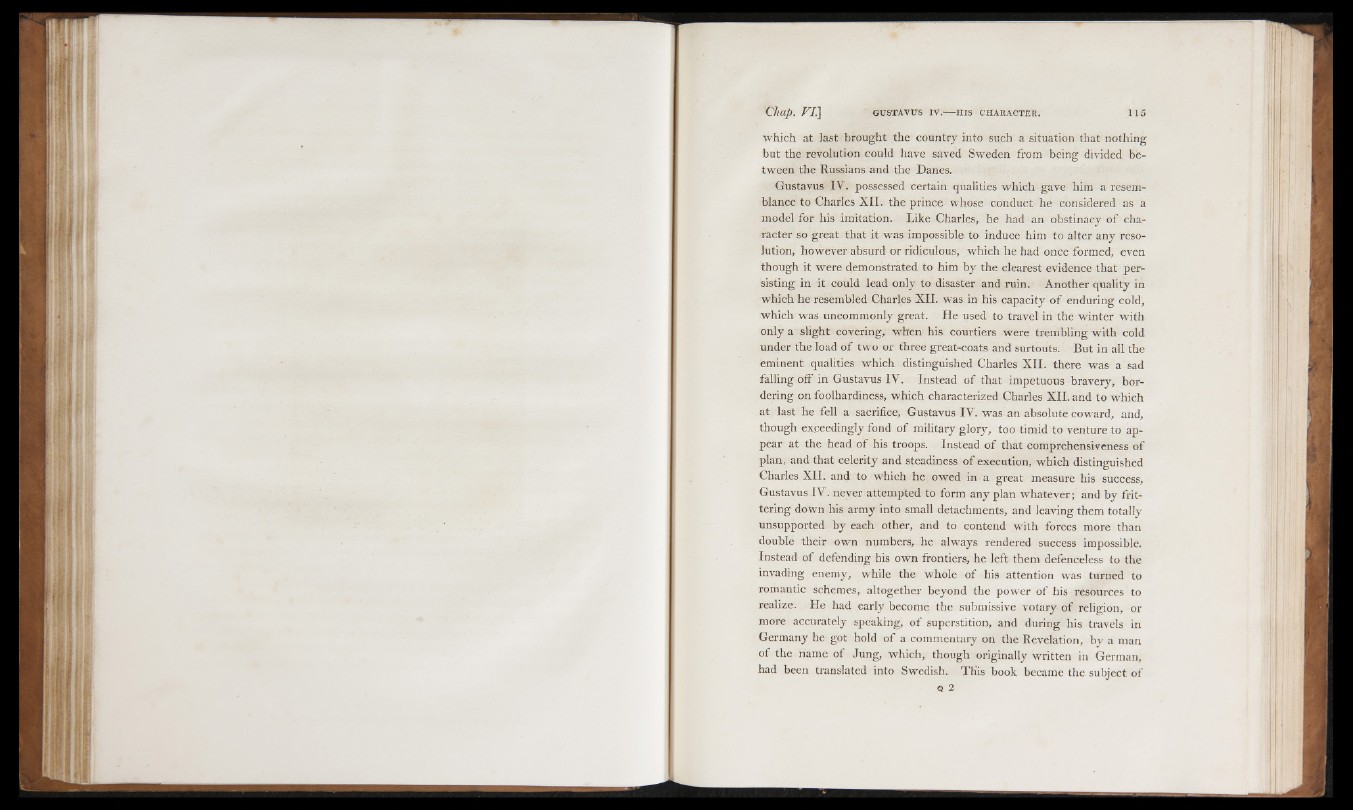
which at last brought the country into such a situation that nothing
but the revolution could have saved Sweden from being divided between
the Russians and the Danes.
Gustavus I V possessed certain qualities which gave him a resemblance
to Charles XII. the prince whose conduct he considered as a
model for his imitation. Like Charles, he had an obstinacy of character
so great that it was impossible to induce him to alter any resolution,
however absurd or ridiculous, which he had once formed, even
though it were demonstrated to him by the clearest evidence that persisting
in it could lead only to disaster and ruin. Another quality in
which he resembled Charles XII. was in his capacity o f enduring cold,
which was uncommonly great. He used to travel in the winter with
only a slight covering, when his courtiers were trembling with cold
under the load of two or three great-coats and surtouts. But in all the
eminent qualities which distinguished Charles XII. there was a sad
falling off in Gustavus IV. Instead of that impetuous bravery, bordering
on foolhardiness, which characterized Charles XII. and to which
at last he fell a sacrifice, Gustavus IV. was an absolute coward, and,
though exceedingly fond o f military glory, too timid to venture to appear
at the head o f his troops. Instead of that comprehensiveness of
plan, and that celerity and steadiness of execution, which distinguished
Charles XII. and to which he owed in a great measure his success,
Gustavus IV. never attempted to form any plan whatever; and by frittering
down his army into small detachments, and leaving them totally
unsupported by each other, and to contend with forces more than
double their own numbers, he always rendered success impossible.
Instead of defending his own frontiers, he left them defenceless to the
invading enemy, while the whole of his attention was turned to
romantic schemes, altogether beyond the power o f his resources to
realize. He had early become the submissive votary o f religion, or
more accurately speaking, o f superstition, and during his travels in
Germany he got hold of a commentary on the Revelation, by a man
o f the name of Jung, which, though originally written in German,
had been translated into Swedish. This book became the subject of
q 2